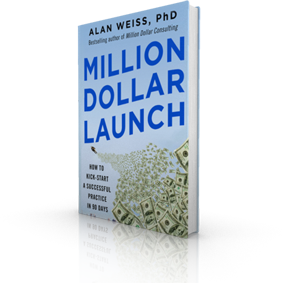
| |
Volume 6 Number 7 | July 2016JudgmentIf you listen to some cable news stations you begin to realize that they are not objective new sources but rather platforms for one political view or another. Most newspapers, including the venerable "newspaper of record," the New York Times, also have consistent editorial biases. An abundant mindset must take these ingrained biases into consideration when digesting the news. For example, I know which book reviewers I agree with and which I don't, and I read both but respond accordingly. (I buy books the ones I agree with like and the one's I don't agree with dislike.) Similarly, you have to accept what you read and hear with the insightful advice, "consider the source." My kids were never entirely accurate reporting a disagreement, because they slanted the "facts" in their respective favor. We must assume the same with information we encounter. Business LessonsThus, the worst thing you can do is consider the equivalent of "schoolyard gossip" within your client organization as the truth. I've had consultants ask me if they should approach their buyer and report that he is unreasonable and too short-tempered. "Have you observed that yourself in your dealings with him, or in his dealings with others at meetings or casually?" "No, but two different people told me about it." Those two people probably have their own ax to grind and/or are transferring their own unhappiness or ineffectiveness to their boss. Blindly believing what people tell us without supporting observed behavior and independent evidence is sloppy consulting. It's like reading opinions on Facebook and believing you're hearing accurate history. AnalysisWe owe ourselves the discipline not to simply believe everything we hear or are told, even if that information is supportive of our position or provides an "easy" route. People with sophisticated judgment seek to verify and confirm. We need the discipline to question and investigate. One of the greatest errors I've seen consultants commit is that they immediately assume the buyer is the problem-the very person who was "smart enough" to hire them to begin with! That attitude is not only fatal in terms of business potential, but it's also simplistic and smug. Take the time to question, no matter what the source. Prove to yourself that the position is legitimate and justifies your support and/or action. As Oscar Wilde once observed, "Don't believe everything you hear, even if I tell you!" © Alan Weiss 2016 |
|
You are subscribed as: _email_



